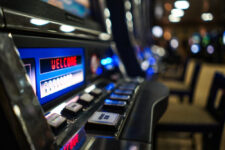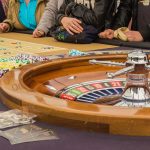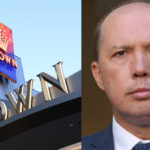Gambling Venues Fined for Giving Punters Free Alcohol

Woolworths-owned Australia Leisure and Hospitality Group (ALH) which owns a number of pubs around the country has been fined for giving gamblers free alcohol.
Two of its hotels on the New South Wales North Coast have been ordered to pay $172,000 in fines to Liquor and Gaming NSW – the industry oversight body – for ‘unethical practices.’ They have also been banned from operating their poker machines for two weeks.
Under NSW gaming laws, it’s illegal to offer or supply free or discounted alcohol to induce gambling because alcohol can affect judgement, and the ability to make responsible choices.
Licensees of the two North Coast venues were also fined a total of $3,500, and one ALH manager was banned from the industry in NSW for five years.
There have been allegations that ALH has been doing this across three states, but it is understood that Liquor and Gaming NSW is the first regulator to take action.
‘Drop in the ocean’
However, are these fines and bans sufficient punishment? Many professionals working with gambling addicts trying to rebuild their lives, as well as recovering gamblers themselves, believe the fines handed out to ALH are vastly disproportionate to the profit these individual venues make from gambling every year.
What’s more, ALH is one of Australia’s largest operators – there’s a community expectation that as one of the largest operators in the country, it would behave within the industry codes and regulations, particularly given that Woolworths, its parent company, trades on its brand reputation as a cornerstone of community and a reliable ‘fresh food’ source for families.
Gambling addiction is a serious problem
Gambling is a serious problem in Australia. Around 6.8 million people gamble regularly, collectively spending a total of $23 billion each year. Governments receive about $5-6 billion dollars a year in taxes from this revenue, and it also needs to be noted that the industry is one of the biggest donors to political parties.
The social costs of gambling
And there is a huge cost associated with the industry’s dark side. Because they’re so easily accessible, pokies are the biggest driver of the gambling industry, and about one in six Australians who play regularly has a serious addiction and loses on average about $21,000 a year, according to government data.
The social cost of gambling to the community is estimated to be at least $4.7 billion a year.
Gambling leads to other social problems
Gambling can be highly addictive, because when a person places bets and wins, dopamine and endorphins (the ‘feel good’ chemicals in the brain) create a sense of pleasure and reward. The ‘high’ is similar to the ones that drug users feel, and can lead to compulsive gambling, which can be difficult to overcome without professional help. But it often goes untreated because it’s considered less serious than an alcohol or drug dependency, and besides it’s a legal activity, and so only about 15% of addicts get help, and by the time they do, they’re lives are usually in chaos and financial ruin.
It’s been estimated that about one quarter of problem gamblers turn to crime to support their habit – typically embezzlement, theft, and fraud. Recently, a professional financial planner made headlines because he is now facing possible prison time after taking his clients’ money to fuel a sports betting gambling addiction, which left him $8 million in debt.
But gambling can lead to other social problems too – family breakdowns, domestic violence, drug use, alcohol dependency and even suicide.
In New South Wales, The Responsible Gambling Fund (RGF) plays a key role in advising the NSW Government on the allocation of funds for initiatives and programs that support responsible gambling and help reduce gambling-related harms.
It was established under the Casino Control Act 1992 and requires each casino licence in NSW to make contributions to the Fund, – these are currently set at two percent of gaming revenue. Money may also be paid into the Fund as a community benefit payment or gaming machine lease levy under the Gaming Machines Act. The Betting Tax Act also allows for the Treasurer to pay certain amounts to the Fund.
In the 2018/19 financial year, $30 million was committed from the Fund to support responsible gambling in NSW but many people still fall prey to the addiction and there have long been calls for regulatory reform.







